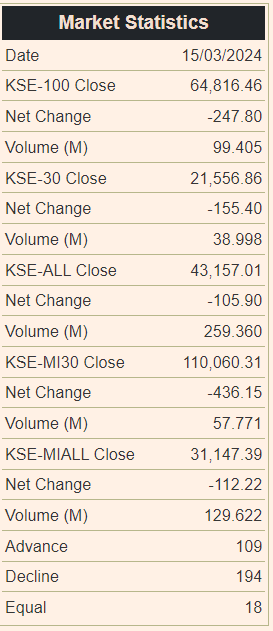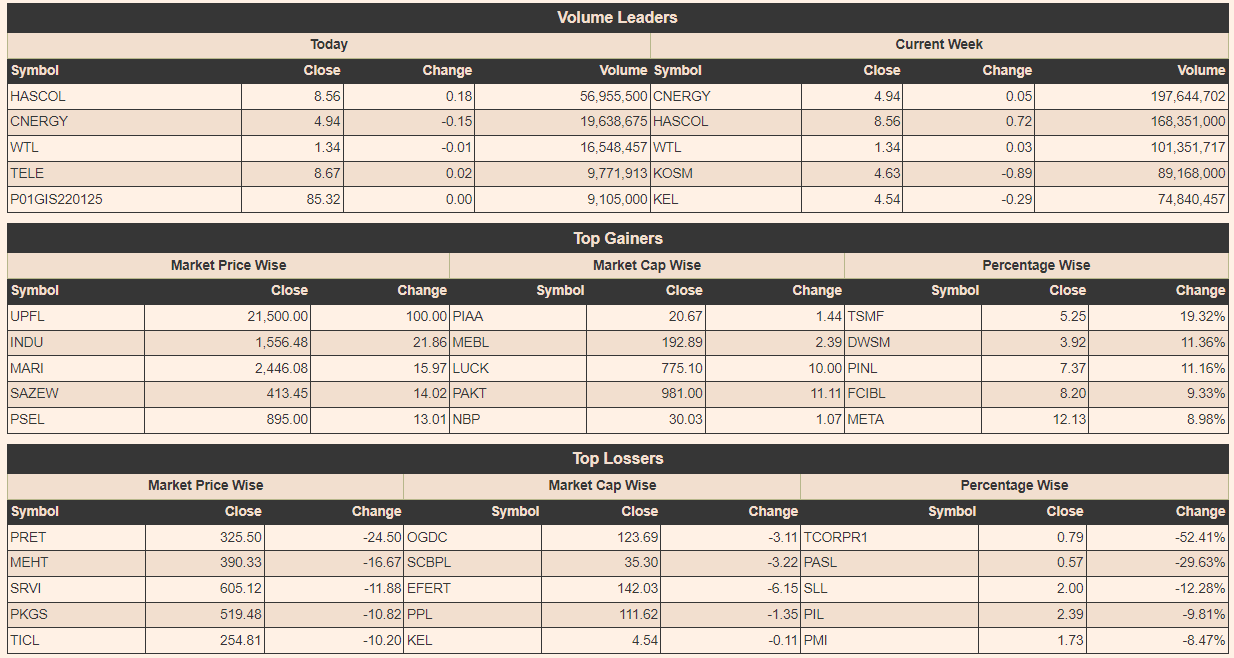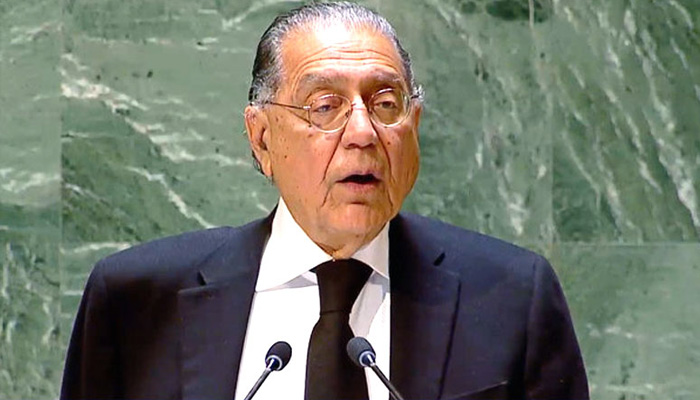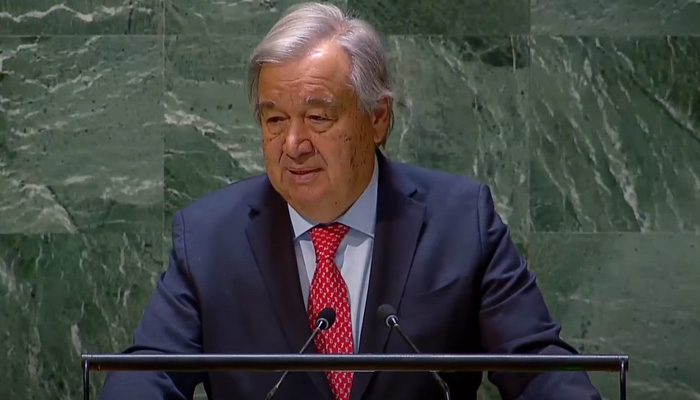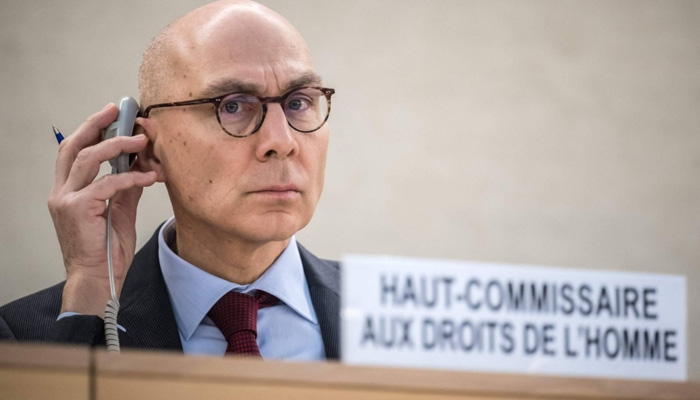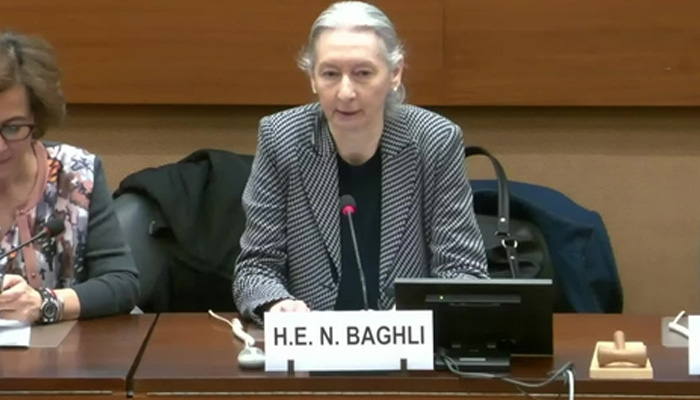

World
politics
Donald Trump threatens of ‘bloodbath’ if not re-elected as US president
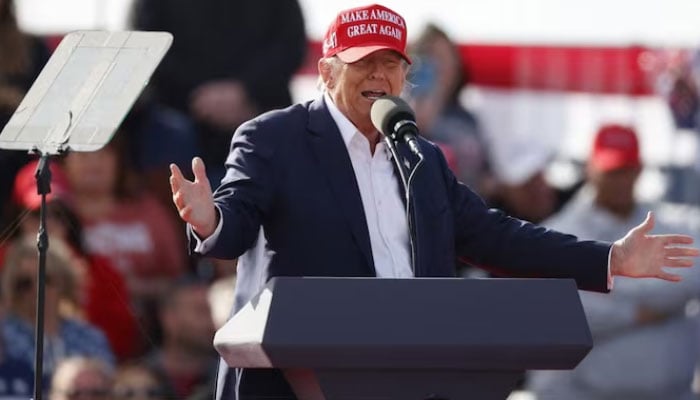
In a speech to campaigners in an Ohio rally, Republican candidate Donald Trump warned voters of a “bloodbath” if he is not re-elected in November, India Today reported Sunday.
“If we don’t win this election, I don’t think you’re going to have another election in this country,” said the former president during the outdoor speech at Dayton on Saturday.
Furthermore, he said, “It’s going to be a bloodbath for the whole country.”
Later, Trump’s campaign spokeswoman Karoline Leavitt clarified that what he meant was, if President Joe Biden is re-elected, “his economic policies will create a bloodbath for the auto industry.”
In response to Trump’s comments, Biden’s campaign was quick to release a statement, calling Trump a “loser”.
The campaign said, “He wants another January 6, but the American people are going to give him another electoral defeat this November because they continue to reject his extremism, his affection for violence, and his thirst for revenge.”
The rally was intended to garner support for Republican senate candidate Bernie Moreno, whom Trump endorsed last December.
Calling him a “warrior”, Trump said, he is an “America first champion” and “political outsider who has spent his entire life building up Ohio communities.”
Trump, 77, is running for his third presidency in the United States Elections 2024, and will be seen in a rematch against Democrat competitor Biden.
UN adopts Pakistan-sponsored anti-Islamophobia resolution with overwhelming majority
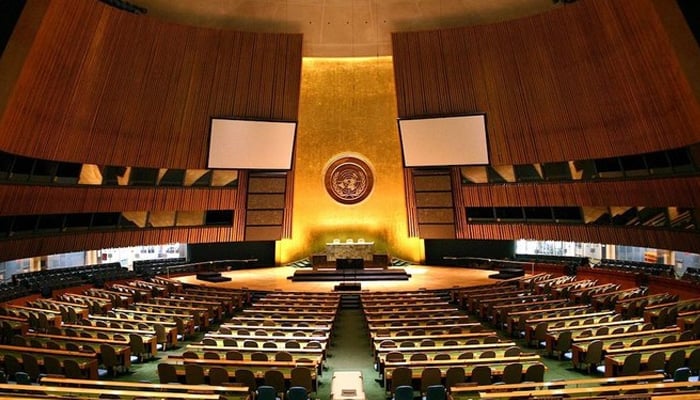
Calling for concerted action, among other elements to end ongoing violence against Muslims, the United Nations General Assembly (UNGA) has adopted a resolution tabled by Pakistan with an overwhelming majority on International Day to Combat Islamophobia.
The resolution requests the UN secretary-general to appoint a special envoy to combat Islamophobia.
Prior to adopting the new resolution, entitled: ‘Measures to Combat Islamophobia’, by a vote of 113 in favour to none against, with 44 abstentions, the 193-member Assembly rejected two amendments proposed by a group of European nations. India, along with most of European states, abstained on the resolution.
The proposals would have replaced key language in the resolution, including calling for a focal point instead of a UN special envoy and removing references to the desecration of the Holy Quran.
The UN created the International Day through a resolution adopted following attacks on two mosques Christchurch, New Zealand, that left 51 people dead on March 15, 2019.
Two years ago, the General Assembly declared March 15 as the International Day to Combat Islamophobia under the terms of a resolution, also presented by Pakistan, with the sponsorship of the OIC and other like-minded Member States.
Introducing the resolution, Ambassador Munir Akram, permanent representative of Pakistan to the UN, said despite the resolution and other actions as well as efforts by leaders promoting inter-religious and inter-communal harmony, the incidents of Islamophobia – of discrimination, prejudice and violence against Muslims – have risen exponentially both at the societal and state levels.
“These are manifested by the despicable acts of desecration of the Holy Quran with seven such incidents recorded last year alone,” he said.
“The lynching of Muslims by ‘cow vigilantes’: They are manifested by the widespread hate speech against Muslims, online and offline, in discrimination in education and employment.
“In attacks on women wearing the hijab. In the vandalisation and destruction of mosques and other holy sites. In racial and religious profiling. In the media outlets, spawning hate and prejudice and fuelling hate and prejudice. In the calls for genocide against Muslim minorities which go unpunished,” the Pakistani envoy added.
But most governments , he said, refuse to adopt laws and rules that would prevent and punish such acts of Islamophobia and incitement to violence on the spurious agenda of the right to “freedom of expression”.
“Yet,” he said, “this freedom ends if the Holocaust is denied. This freedom ends if you are demonstrating for Palestinian rights or protesting against Israel’s ‘plausible genocide’ in Gaza.”
“What is worse is that Islamophobia is not only tolerated, but propagated by a growing number of states and political leaders in the democracies.” Ambassador Akram said, noting the rise of right-wing and fascist partners in recent elections confirms and consolidates this Islamophobic trend.
“This could lead to an inter-regional anti-Muslim ‘coalition of the killing.’ Without naming Prime Minister Narendra Modi, the Pakistani envoy said the Indian leader “gleefully consecrates a Hindu temple on the ruins of a historic 500-year-old mosque”.
“A citizenship law is implemented that would deny asylum to Muslims alone and is designed to render 200 million Muslims either stateless or second-class citizens, he said.
“A home minister (Amit Shah) castigates the police for being ‘too lenient’ against pro-Palestinian demonstrators opposing Israel’s brutal Gaza campaign.
“Immigration policies are designed to deliberately exclude Muslims. Hijab bans are officially imposed. The Muslim call to prayer is prohibited in some states and ridiculous rules have been promulgated to prevent so-called ‘love jihad’ in the ‘largest democracy’. Islamic names of cities are being replaced. The Islamic legacy is to be obliterated.”
He added, “The killing of over 30,000 Palestinians in Gaza mostly women and children and calls for genocide against them has been justified by describing them as ‘human animals’. The same mindset has led to the foreign occupation and suppression of Muslims elsewhere and to the series of foreign interventions in Muslim countries.”
UN chief urges effective measures
UN Secretary-General Antonio Guterres said “divisive rhetoric and misrepresentation are stigmatising communities” and everyone must unite to combat intolerance, stereotypes and bias.
“Online hate speech is fuelling real-life violence,” the UN chief said in a statement, emphasising that digital platforms must moderate hateful content and protect users from harassment.
Institutional discrimination and other barriers are violating the human rights and dignity of Muslims, and much of this disturbing trend is part of a wider pattern of attacks against religious groups and vulnerable populations, also including Jewish people, minority Christian communities and others, he added.
“We must confront and root out bigotry in all its forms,” he declared. “Leaders must condemn inflammatory discourse and safeguard religious freedom.
“Together, let us commit to promoting mutual respect and understanding, foster social cohesion and build peaceful, just and inclusive societies for all.”
‘Islamophobia has stolen lives’
In Geneva, Volker Turk, UN High Commissioner for Human Rights (OHCHR), said all forms of religious hatred and intolerance are unacceptable.
“The message today is perhaps more urgent than ever: we are all well past the hour to restore peace, tolerance and respect,” he said. “We know that fear breeds hate, ignorance and distrust of the other.”
“Islamophobia has stolen lives”, dehumanising entire communities and sparking “torrents of hate speech, magnified by social media”, he said, citing multiple reports on “huge spikes” in Islamophobic incidents amid the current conflict in the Middle East, with a nearly 600% increase in some countries in North America and Europe.
States must record such incidents and urgently step up their efforts to combat intolerance against people based on religion or belief using the many available tools at their disposal, including the OHCHR guide to developing anti-discrimination legislation.
“Faith literacy – in other words, knowledge and understanding about the values of each religion and belief – is also crucial,” Turk said, urging States to include it as part of comprehensive training initiatives on combating religious hatred for law enforcement officers and the judiciary, faith-based actors, teachers and media professionals.
‘Islamophobia rises after Israeli aggression on Gaza’
Also in Geneva, Nassima Baghli, Permanent Observer of the Organisation of Islamic Cooperation (OIC), hosted a commemorative event on Friday, saying that “Islamophobia is on the rise following the Israeli aggression on Gaza”.
Citing recent anti-Muslim incidents, she pointed to cases several months ago of the desecration of the Holy Quran. “Discrimination and stereotypes based on religion or belief are doing a lot of harm as they dehumanise people and prevent them from enjoying their rights,” Baghli said.
“We need to combat these scourges with great resolve with all the tools at our disposal,” she said. “Our common goal is to promote mutual understanding and respect for all.”
Jeff Bezos beats Elon Musk as world’s richest man — here’s how he became wealthy
Jeff Bezos, Elon Musk, Bernard Arnault are leading as top 3 world’s richest men
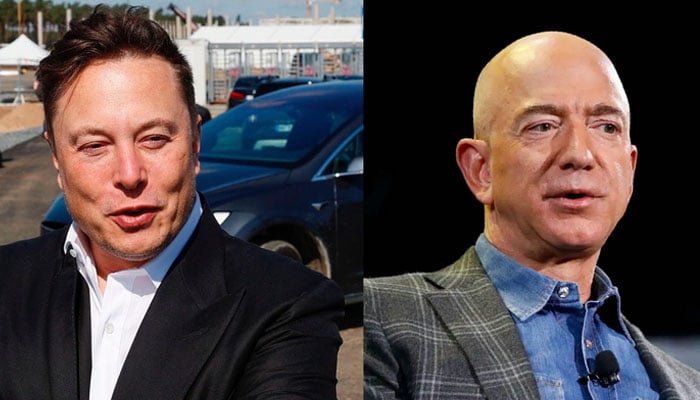
Elon Musk has lost his position as the richest person in the world to Jeff Bezos, who has recovered the top spot on the global wealthy list.
As per the Bloomberg Billionaires Index, Musk is worth $198 billion (£154.5 billion), while the founder of Amazon is currently worth $200 billion (£156 billion), according to The Standard.
In recent years, there have been multiple lead changes between the two as they compete – whether consciously or unintentionally – for the title with Bernard Arnault, the head of LVMH.
It returns Bezos to the top for the first time since 2021’s autumn. He reportedly benefited from a soaring stock price even though he is no longer in charge of the company.
Here are some important things to know about world’s top three richest men:
Jeff Bezos
Jeff Bezos started Amazon.com in a Seattle garage in 1994, not long after leaving the D E Shaw hedge fund. When he first proposed the concept of an online bookshop to David E Shaw, his old supervisor, he was met with disinterest.
Amazon.com began as a book retailer before growing into a one-stop shop for all things related. It may currently be the biggest retailer in the world. Some of Amazon’s surprise forays into new markets, like its 2017 acquisition of Whole Foods and entry into the pharmacy industry, demonstrate the company’s consistent pattern of diversification.
Elon Musk
Elon Musk was born in South Africa and raised in Pretoria before coming to the United States to attend the University of Pennsylvania.
He later co-founded PayPal, which he sold to eBay in 2002 for $2.5 billion (£2.1 billion), after his first software start-up, Zip2, was acquired in 1999 for $307 million (£255 million). In 2002, he established SpaceX and currently serves as the CEO of Tesla. He is the company’s biggest stakeholder, owning an estimated 14% of the company.
In October, he successfully finalised the $44 billion (£36 billion) acquisition of Twitter, which he rebranded as X.
Bernard Arnault
The 74-year-old French millionaire is in charge of 70 of the most well-known fashion and cosmetics companies in the world, such as Sephora, Tiffany, and Louis Vuitton.
Arnault, like many billionaires, hailed from a prosperous family that had a prosperous construction company. After purchasing Christian Dior with $15 million (£12.5 million) from his father’s company, he made his debut in the fashion world in 1985.
All cargo offloaded from first aid ship to reach Gaza: NGO

IMF begins selection process for next managing director

The International Monetary Fund said its executive board has initiated the selection process for its next managing director.
The IMF said the board has “adopted an open, merit-based, and transparent process” for the selection process, adding the board aims to reach a decision by consensus by the end of April.
“The successful candidate for the position of Managing Director will have a distinguished record in economic policymaking at senior levels. He or she will have an outstanding professional background, will have demonstrated the managerial and diplomatic skills needed to lead a global institution, and will be a national of any of the Fund’s members,” it said in a statement on Wednesday.
Kristalina Georgieva, the IMF’s current managing director, is widely expected to be renominated for a second five-year term, after her current term expires on Sept. 30.
Israel killed more children in Gaza in last 5 months than all conflicts worldwide for last 4 years: UN rapporteur

In just five months, Israel has killed more children in a strip of land the size of the US state of Philadelphia than all conflicts worldwide did in the past four years combined, said a UN special rapporteur on Wednesday.
In a scathing report presented to the United Nations today, Francesca Albanese, the UN special rapporteur on the occupied Palestinian territories, decried the ongoing crisis in Gaza, describing it as a systematic process tantamount to genocide.
Albanese’s report underscores the harrowing reality faced by Palestinian children under Israeli occupation, highlighting the devastating toll of the conflict.
“Destroying a population from its roots. Genocide is a process, not an act, and what is happening in Gaza is a tragedy foretold. See my report on the treatment of Palestinian children under Israeli occupation,” she wrote on X.
The report details the relentless assault on Gaza’s civilian population, particularly its children, who have borne the brunt of the violence. Albanese’s findings paint a disturbing picture of systematic targeting, indiscriminate bombings, and the destruction of essential infrastructure, leaving countless families displaced and communities in ruins.
Israel has waged a deadly military offensive on the Gaza Strip since an Oct. 7 cross-border attack led by Hamas in which some 1,200 people were killed.
Over 31,000 Palestinians, mostly women and children, have since been killed in Gaza, and over 73,000 others injured amid mass destruction and shortages of necessities.
The Israeli war has pushed 85% of Gaza’s population into internal displacement amid a crippling blockade of most food, clean water, and medicine, while 60% of the enclave’s infrastructure has been damaged or destroyed, according to the UN.
Israel stands accused of genocide at the International Court of Justice. An interim ruling in January ordered Tel Aviv to stop genocidal acts and take measures to guarantee that humanitarian assistance is provided to civilians in Gaza.
Putin says Russian nuclear weapons ‘more advanced’ than in US

MOSCOW – President Vladimir Putin on Wednesday lauded Moscow’s nuclear arsenal and warned that he was ready to deploy the weapons if Russia’s sovereignty was threatened. The Kremlin has touted its nuclear prowess throughout its two-year offensive in Ukraine, last month warning Western countries there was a “real” risk of nuclear catastrophe if they escalated the conflict.
Putin’s browbeating rhetoric comes just days ahead of elections in Russia that are all but guaranteed to hand him another six years in power and as his military posts gains in Ukraine.
“Our triad, the nuclear triad, it is more modern than any other triad. Only we and the Americans actually have such triads. And we have advanced much more here,” Putin said in a wide-ranging interview with state media.
The “triad” refers to Russia’s three-pronged arsenal of weapons launched from land, sea and air. “We are ready to use weapons, including any weapons — including the weapons you mentioned — if it is a question of the existence of the Russian state or damage to our sovereignty and independence,” Putin added in the interview that aired on Wednesday. The Russian leader also dismissed recent comments by French leader Emmanuel Macron, who last month declined to rule out putting boots on the ground, a significant shift in rhetoric as Ukraine struggles on the battlefield.“The fact is that the militaries of Western countries have been present in Ukraine for a long time,” the Russian leader claimed, referring to what the Kremlin says are mercenaries.
“But if we talk about official military contingents of foreign countries, I am sure it will not change the situation on the battlefield,” he added. While Macron has doubled down on his remarks, several of Ukraine’s allies, including Washington, have distanced themselves from the idea, which stunned many in Europe.
Putin’s comments came hours after Kyiv targeted Russia’s energy infrastructure and border regions for the second day in a row. Ukrainian drones attacked three oil refineries hundreds of kilometres from the frontline in the regions of Ryazan, Nizhny Novgorod and Leningrad, a security source told AFP.
“Our task is to deprive the enemy of resources and reduce the flow of oil money and fuel,” the source said. One drone caused a fire and wounded several people when it crashed into an oil refinery in the Ryazan region that lies some 200 kilometres (120 miles) southeast of Moscow, Ryazan regional governor Pavel Malkov wrote on Telegram. In the Rostov region bordering Ukraine, air defences downed three drones flying towards the city of Novoshakhtinsk, regional governor Vasily Golubev said.
The day before, Russia said it had repelled a series of brazen cross-border raids by pro-Ukrainian militias, who burst into its territory and claimed to seize control of a village. Putin said that Ukraine was upping its attacks on Russian territory to interfere with upcoming presidential elections.
“It’s simple. This is all happening against the backdrop of failures on the frontline. They did not achieve any of the goals that they set for themselves last year,” Putin said. “I have no doubt that the main goal is, if not to disrupt the presidential elections in Russia then to somehow interfere with the normal process,” he said. Ukraine has ceded ground to Russian forces in recent months as it faces a myriad of shortages, from artillery to air defences, in part because a $60 billion aid package remains held up in the US Congress.
Economy (World)
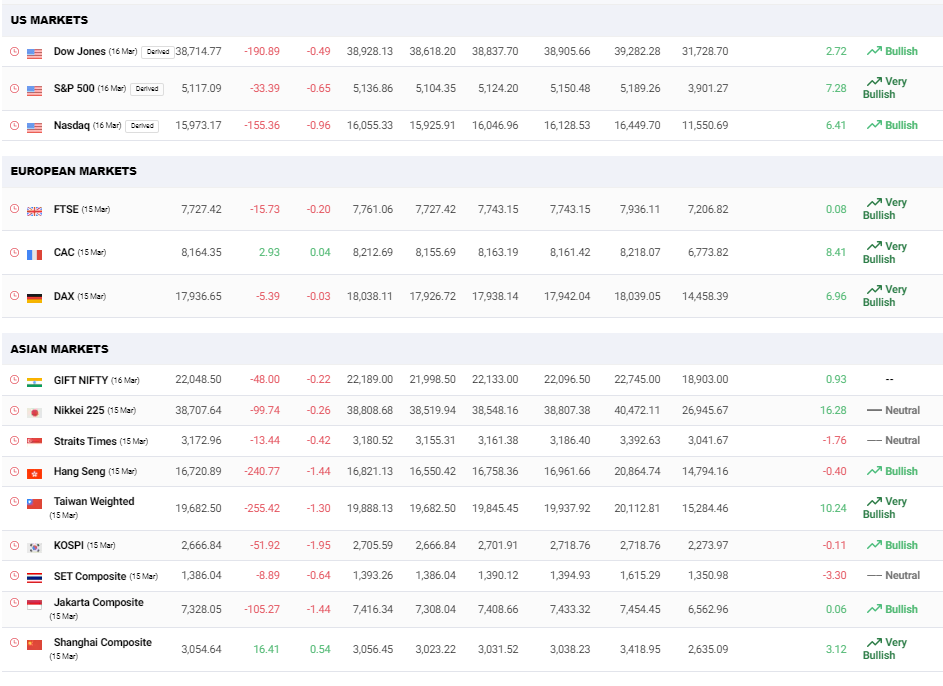
PAKISTAN
Politics
Efforts afoot to provide relief to people: Punjab CM

Punjab Chief Minister Maryam Nawaz says all necessary measures will be taken to provide relief to people in the province.
In a statement, the Chief Minister said special bags of Nigehban Ramadan Package have been delivered to more than three million deserving families.
She said delivery of these special bags to a total of six point four million deserving families will be completed soon.
Maryam Nawaz said transparency has been ensured in Nigehban Ramadan Package as QR Code has been printed on each bag to ensure transparency.
For any complaint regarding the Package, people can contact the Special Helpline 0800-02345.
PM receives phone call from Saudi crown prince

ISLAMABAD – Prime Minister Shehbaz Sharif on Saturday received a congratulatory telephone call from Prince Mohammed bin Salman bin Abdulaziz Al Saud, Crown Prince and Prime Minister of the Kingdom of Saudi Arabia. The crown prince congratulated the prime minister on his re-election.
Prime Minister Shehbaz thanked the Saudi crown prince for the telephone call as well as the warm message of greetings he had sent immediately after he had assumed office.
The prime minister also conveyed his sincerest wishes and prayers for the health and well-being of the Custodian of the Two Holy Mosques, King Salman bin Abdulaziz.
He said the people of Pakistan had great love and respect for the Saudi crown prince. He also wished a blessed month of Ramazan to the Saudi leadership as well as the people and prayed that this holy month would bring peace and prosperity to Muslims all over the world. The prime minister said Pakistan was proud of its historic, deep-rooted and fraternal ties with Saudi Arabia and the two countries had always stood together through thick and thin. He lauded Saudi Arabia for its unwavering commitment and support to Pakistan. Prime Minister Shehbaz reiterated his invitation to the crown prince to undertake an official visit to Pakistan at his earliest convenience and said that the people of Pakistan were waiting to accord him a very warm welcome. Crown Prince Mohammed bin Salman thanked the prime minister for his kind sentiments and said that both countries enjoyed close brotherly relations and reaffirmed Saudi Arabia’s support to Pakistan. Later, in a post on his X handle, Prime Minister Shehbaz Sharif has expressed his keenness to work closely with Saudi Crown Prince Mohammed Bin Salman to transform deep rooted and historic fraternal ties between Pakistan and Saudi Arabia into a comprehensive strategic partnership. The Prime Minister expressed gratitude to Saudi Crown Prince’s telephonic call on his reelection.
PTI not part of protests held outside IMF, WB offices, clarifies Gohar

RAWALPINDI – After back-to-back protests led by overseas Pakistanis in the United States (US), Pakistan Tehreek-e-Insaf (PTI) Chairman Barrister Gohar Ali Khan Saturday dissociated with the ongoing protests overseas, clarifying that his party did not have any part in it in the recent demonstrations outside the International Monetary Fund (IMF) and the World Bank (WB) headquarters.
“If overseas Pakistanis are making up something, then it would be their own decision,” Barrister Gohar said Saturday while speaking to media outside Adiala Jail — Rawalpindi post-hearing of 190m NCA scandal case against PTI founder Imran Khan and his wife Bushra Bibi. It is noteworthy that several PTI workers from overseas chapter staged protests outside the IMF and WB headquarters in Washington against alleged irregularities in the 2024 general elections in Pakistan. Friday’s protest in US was attended by former premier Khan’s ex-chief of staff Shahbaz Gill and PTI spokesperson in the United States, Sajjad Burki. Responding a question, the PTI chairman said that the party did not ask the IMF to stop disbursing financial aid to Pakistan; however, it admitted that the party urged the global lender’s recall its commitments for free and fair elections and transparent allocations of its funds. “Not only reserved seats, we also wanted to get protection from our independent candidates as merging with a political party would also stop defections,” said Gohar. He reiterated that PTI-SIC merger was best decision taken after much deliberation.
In meeting at Adiala Jail, Imran, CM Gandapur discuss political matters

PESHAWAR – Advisor to KP Chief Minister for Information, Barrister Muhammad Ali Saif on Saturday said that a meeting was held between Pakistan Tehreek-e-Insaf (PTI) founder and Chief Minister Khyber Pakhtunkhwa Ali Amin Khan Gandapur at Adiala Jail in Rawalpindi. “Important political matters were discussed during the meeting,” Saif said in a statement.
Barrister Saif said during the meeting, consultations took place regarding the Senate elections, particularly concerning the nominations from Khyber Pakhtunkhwa. He said that Chief Minister Ali Amin Gandapur got approval from PTI’s founder for the nominations from Khyber Pakhtunkhwa for the Senate elections. Barrister Saif said that party chief was briefed in detail by Chief Minister Ali Amin Gandapur regarding his meeting with Prime Minister Shehbaz Sharif. The chief minister also briefed the PTI founder about the restoration of health card and the Ramazan package in the province, he added.
Pakistan welcomes adoption of UNGA resolution on Islamophobia

Pakistan Saturday welcomed the adoption of the resolution titled “Measures to Combat Islamophobia,” by the UN General Assembly with an overwhelming majority.
The resolution was presented by Pakistan on behalf of the Organization of Islamic Cooperation (OIC) as a follow-up of the General Assembly Resolution 76/254, which designated 15th of March as the International Day to combat Islamophobia.
The General Assembly has condemned the incitement to discrimination, hostility or violence against Muslims as manifested in the increasing number of incidents of desecration of the Holy Quran, attacks on mosques, sites and shrines and other acts of religious intolerance, negative stereotyping, hatred and violence against Muslims.
The General Gssembly has also called upon the Member States to take legislative and policy measures to combat religious intolerance, negative stereotyping, hatred, incitement to violence and violence against Muslims.
Pakistan welcomed the General Assembly’s call for the appointment of a “United Nations Special Envoy to combat Islamophobia”. This historic appointment will be the first of its kind, exclusively dedicated to combating the scourge of Islamophobia.
The adoption of the resolution comes at a critical time, amidst rising Islamophobia, as manifested by an increasing number of incidents of discrimination, violence, and incitement against Muslims around the world.
Pak Army will resolutely support govt: General Asim

General Syed Asim Munir affirms Army will continue to measure up to nation’s expectations n PM Shehbaz, ministers briefed on current security environment during GHQ visit n Civilian, military leadership to work together for a prosperous Pakistan: ISPR n PM launches nationwide spring plantation drive n US Ambassador calls on PM.
ISLAMABAD – Prime Minister Shehbaz Sharif accompanied by key members of his cabinet visited the General Headquarters (GHQ) in Rawalpindi on Friday.
According to a press release issued by the Inter-Services Public Relations (ISPR), PM was received by Chief of Army Staff (COAS) General Syed Asim Munir and was presented guard of honour. Floral wreath at Yadgar-e-Shuhada was laid by the Prime Minister, to pay tribute to the martyrs.
During his visit, Prime Minister and cabinet members engaged in discussions with military leadership on matters of national security, regional stability and military preparedness. They were briefed on the current security environment, threat spectrum, response to the security threats and ongoing counterterrorism operations.
PM and cabinet members appreciated the professionalism, operational readiness, and sacrifices of Pakistan Army in war against terrorism and commended the dedication of the Pakistan Army in safeguarding the nation’s territorial integrity and ensuring peace and stability.
The PM assured that the government shall provide all the resources required for ensuring operational readiness of the Armed Forces. He said that Pakistan is destined to rise and the role of the Armed Forces in ensuring peaceful rise of Pakistan cannot be over-emphasised.
COAS thanked the PM for the visit and reposing confidence in the Army. COAS affirmed that Pakistan Army will continue to measure up to the nation’s expectations and will resolutely support the government in addressing the security challenges facing Pakistan. The visit concluded with civilian and military leadership reiterating their commitment to upholding national interests and working together for a prosperous and secure Pakistan.
‘MACRO-ECONOMIC REFORMS’
Prime Minister Shehbaz Sharif Friday said that his government is focusing on macro-economic reforms to stabilise the economy and attract foreign investment. He said this while talking to United States Ambassador Donald Blome, who called him in Islamabad.
The prime minister expressed satisfaction on the present state of bilateral relations. He emphasised the need to maintain the positive momentum by regular convening of existing dialogue mechanisms, focused on trade, investment, energy, health, defence, education, agriculture and climate change.
In this regard, he also highlighted the role of the Special Investment Facilitation Council that has been established to fast-track foreign investments in priority sectors in Pakistan.
A number of issues of bilateral and regional significance were also discussed during the meeting. These include situation in Gaza and the Red Sea, developments in Afghanistan, as well as the case of Dr. Aafia Siddiqui, which was raised forcefully by the prime minister.
While congratulating the Prime Minister on his re-election, Donald Blome said the United States considers Pakistan an important partner and hopes to work with the government to build stronger ties between the two countries.
‘NATIONWIDE SPRING PLANTATION DRIVE’
Prime Minister Shehbaz Sharif on Friday launched the countrywide spring plantation drive by planting a sapling here.
Emphasizing the government’s commitment, he announced to double the number of saplings planted in 2024 compared to the previous year’s achievement of 240 million.
Speaking on the occasion, he highlighted the urgency to expand Pakistan’s forest cover, currently at a mere 5% of the total area, to mitigate climate risks.
Quoting the Global Climate Risk Index, he underscored Pakistan’s ranking as the 5th most vulnerable country to climate-related hazards, he stressed the necessity for immediate action.
“From 1999 to 2018, the country had to face the loss of 10,000 precious lives besides billions of dollars of financial loss; therefore it is crucial to create awareness about the climate change risks at all levels including educational institutions,” the prime minister remarked.
He directed the authorities concerned to make all possible efforts to spread this plantation drive to every corner to make Pakistan a green and pollution-free country.
He also asked all Pakistani citizens to help the government by fully participating in the plantation drive to save the country from climate change disasters and provide a healthy environment.
On the occasion, the prime minister was also briefed about the area-wise plantation targets across the country.
He was informed that during the spring plantation 2024, a total of 54.38 saplings would be planted across the country out of which 14.1 million saplings would be planted in Punjab, 11.72 million in Sindh, 5.71 million in Khyber Pakhtunkhwa, 3 million in Balochistan, 11.85 million in Azad Jammu and Kashmir (AJ&K), and 8 million saplings would be planted in Gilgit Baltistan.
While during the Monsoon 2023 drive, a total of 49.02 saplings were planted across the country out of which 14.62 million saplings were planted in Punjab, 19 million in Sindh, 10.68 million in KP, 1.06 in Balochistan, 3.3 million in AJ&K and 0.36 million saplings were planted in GB.
The major species to be planted in the spring drive include Timar, Kikar, Jand, Amaltas, Shisham, Sukh Chain, Simal, Farash, Phulai, Chir, Kail, Deodar, Peepal, Neem, Drekh, Beri, Imli, Jaman, Chilgoza, Willow, Ailanthus, Sirus, and Poplar.
ECONOMY (PAKISTAN)
